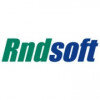21 Neev Group of Companies Jobs
R&S Network Engineer prefer
Neev Group of Companies
posted 4d ago
Job Role Insights
Key skills for the job
Job Description
Overview
The RS Network Engineer (L1) plays a crucial role in maintaining the operational integrity of the network infrastructure within the organization. As an entry-level position, this role is essential for ensuring that all networking devices function effectively, enhancing connectivity and operational efficiency. The engineer will be responsible for assisting in incident management, troubleshooting network performance issues, and providing first-line support to clients and internal users. The importance of this role cannot be overstated, as it lays the groundwork for a seamless user experience in network connectivity, while also serving as a bridge between higher-level engineering teams and everyday network operations. By promptly addressing issues and providing solutions, the L1 engineer helps maintain a stable and efficient network environment that is vital to business operations.
Key Responsibilities
- Monitor network performance and report any irregularities.
- Troubleshoot and resolve basic network issues.
- Assist in the setup and configuration of network devices.
- Provide first-level ticket support and resolution.
- Document network configurations and changes.
- Perform regular maintenance checks on network equipment.
- Collaborate with higher-level engineers on complex issues.
- Communicate effectively with clients regarding network issues.
- Participate in root cause analysis for recurring problems.
- Ensure compliance with network security policies.
- Assist in the implementation of network upgrades and enhancements.
- Conduct basic network audits on performance metrics.
- Maintain accurate inventory of network devices.
- Provide feedback on existing network processes for improvement.
- Stay updated with the latest networking trends and technologies.
Required Qualifications
- Bachelors degree in Computer Science, IT, or related field.
- One year of experience in a technical support role (networking preferred).
- Basic understanding of network protocols (TCP/IP, DNS, DHCP).
- Knowledge of network hardware (routers, switches, firewalls).
- Familiarity with monitoring tools and software.
- Technical certifications (CCNA, CompTIA Network+) are a plus.
- Proficiency in troubleshooting network issues.
- Strong customer service and communication skills.
- Ability to work effectively in a team environment.
- Detail-oriented with strong organizational skills.
- Willingness to learn and adapt to new technologies.
- Basic understanding of network security principles.
- Experience with documentation and technical writing.
- Able to prioritize tasks in a fast-paced environment.
- Must be able to work flexible hours, including on-call support.
- Understanding of wireless and wired network systems.
Experience:- 1y minimum.
Notice :- Immediate or 15 days max.
Certification :- CCNA
Employment Type: Full Time, Permanent
Read full job description What people at Neev Group of Companies are saying
What Neev Group of Companies employees are saying about work life
based on 1 employee
Day Shift
Similar Jobs for you
L3 Azure Administrator with AWS/Google Cloud Skills
7-9 Yrs
Bangalore / Bengaluru
Share an Interview






























